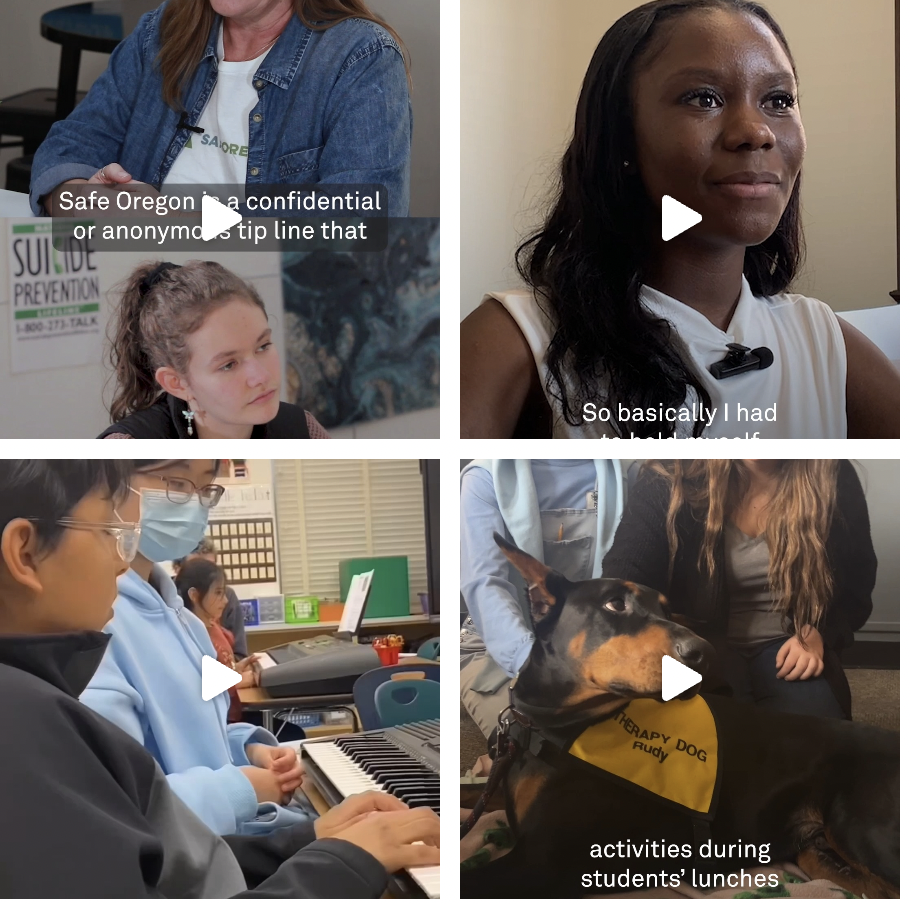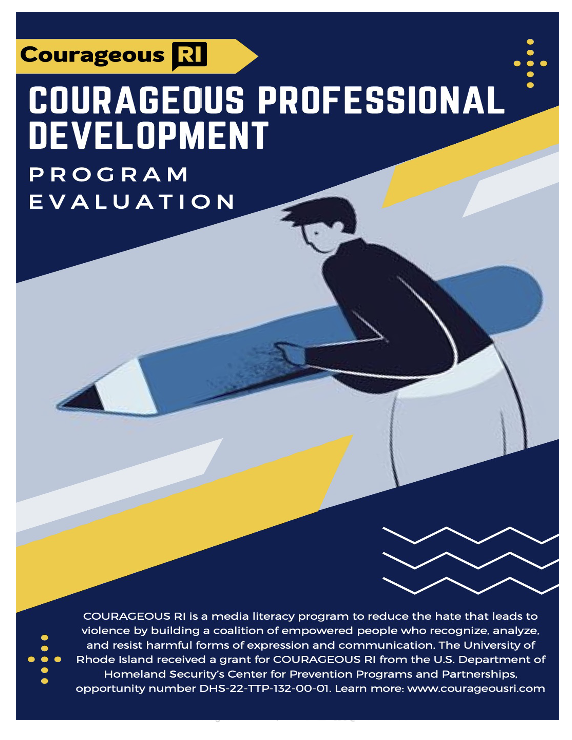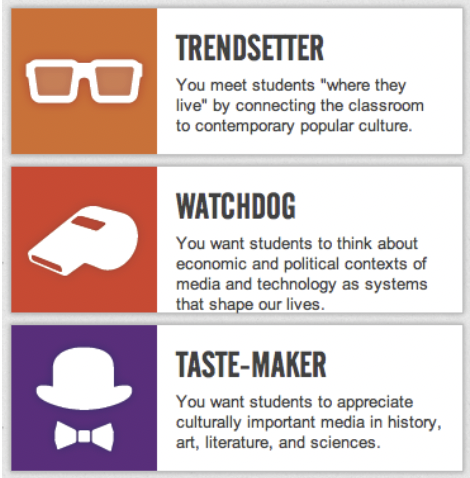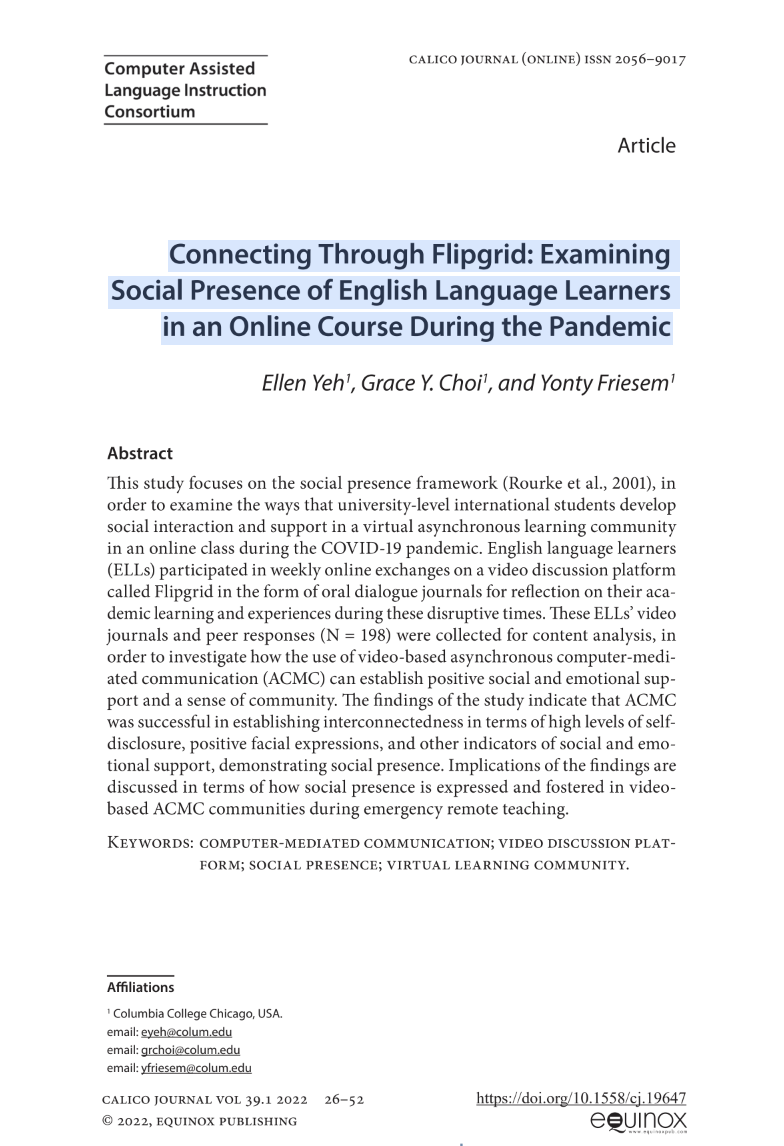- Home
- Research
New Works
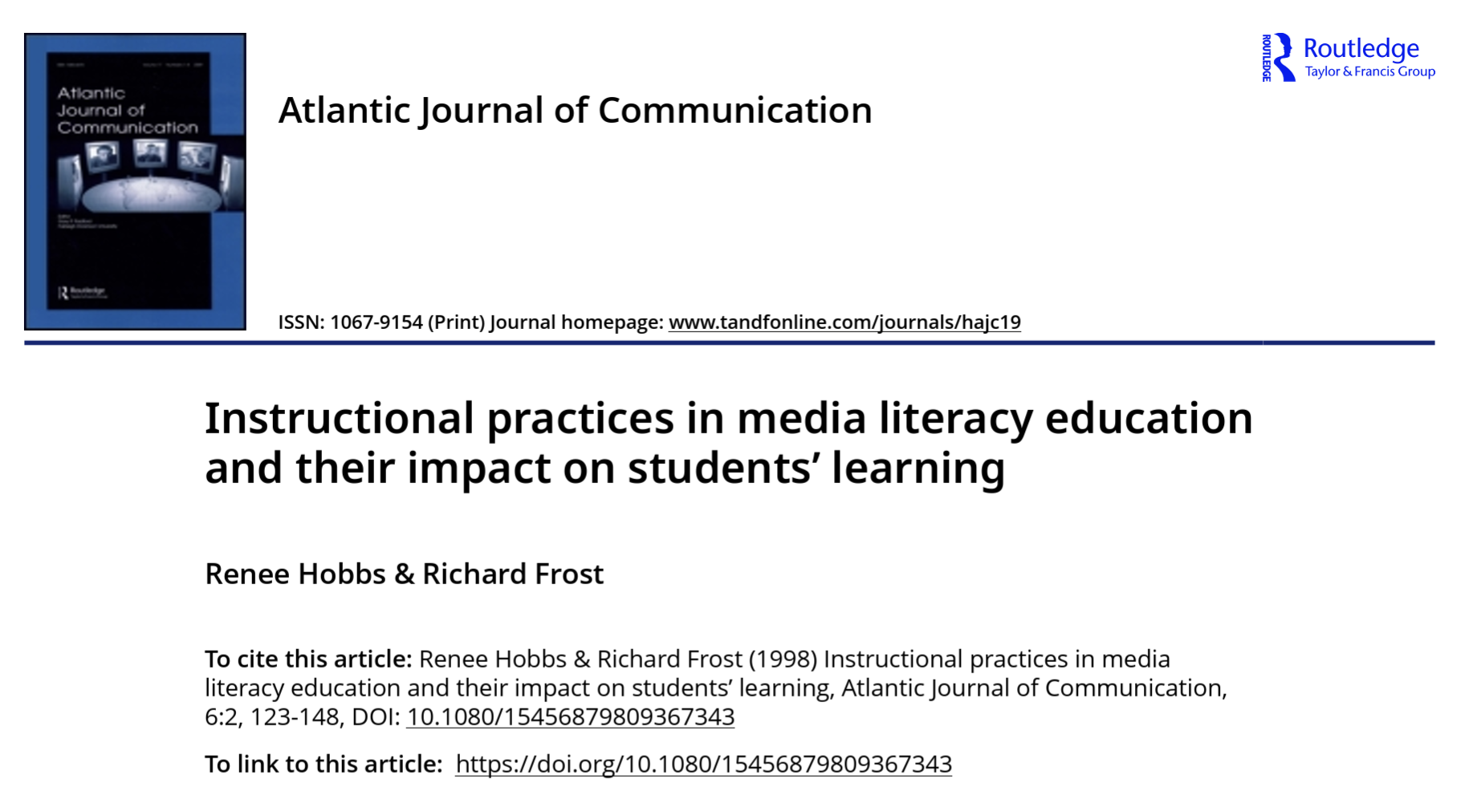
Instructional practices in media literacy education and their impact on students’ learning
1998
Atlantic Journal of Communication
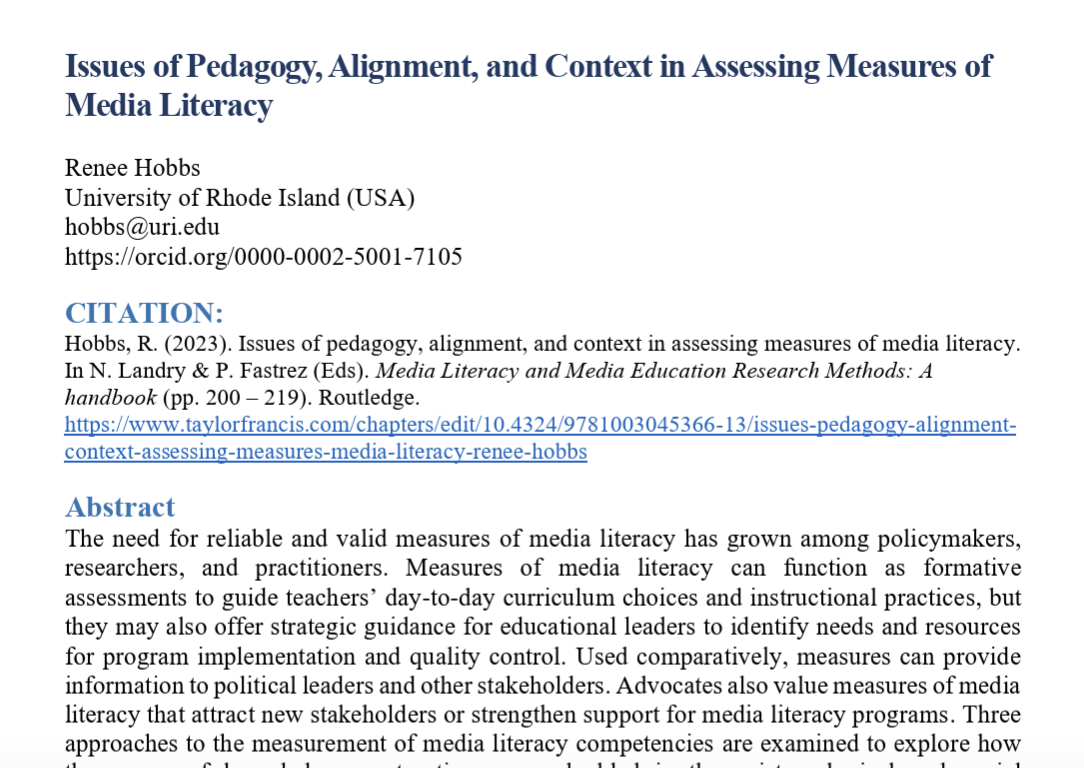
Issues of pedagogy, alignment, and context in assessing measures of media literacy.
2023
Media Literacy and Media Education Research Methods
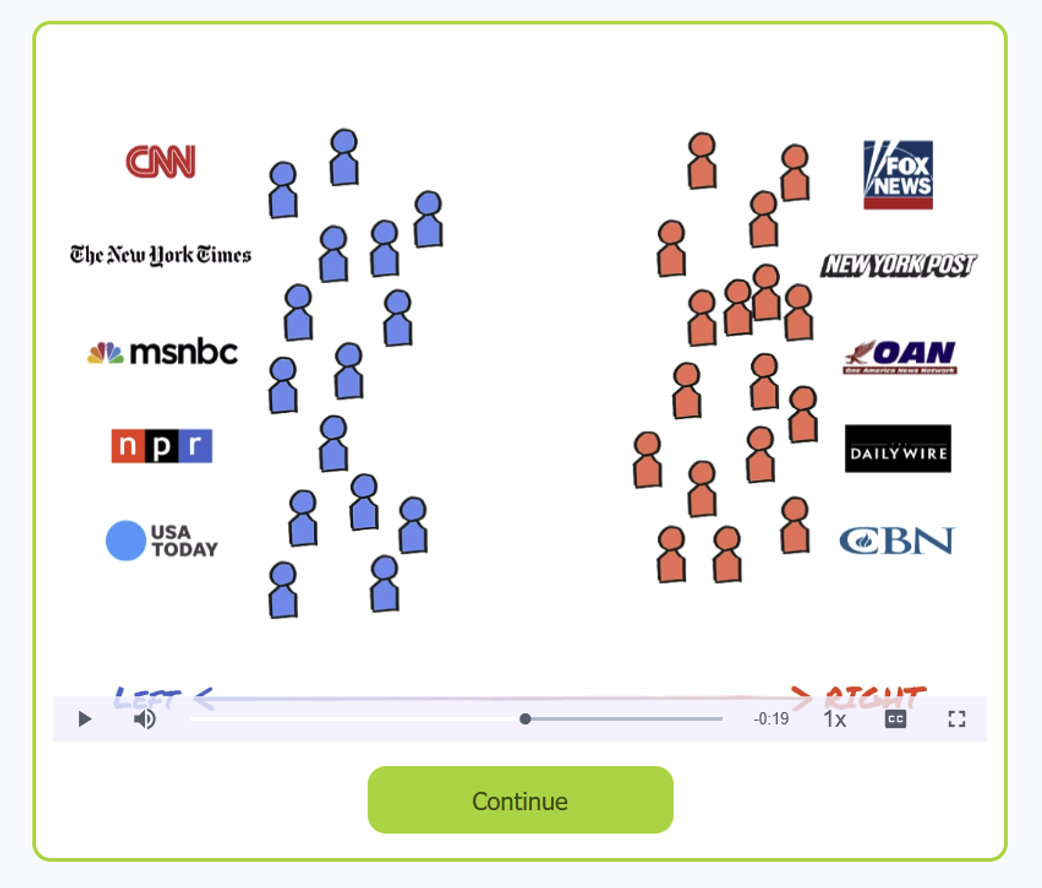
BOSILOS: A Pilot Study of AI-Supported Media Literacy in Higher Education
2025
Media Education Lab

Exploring the Current Implementation and Use of Commercial Platforms in Canadian K-12 Education and the Tetrad of Literacies as a Working Policy Response
Julianna Kowlessar
2025

How Media Literacy Education for Adults Advances Active Listening & Intellectual Humility
2025
AERA Annual Conference

